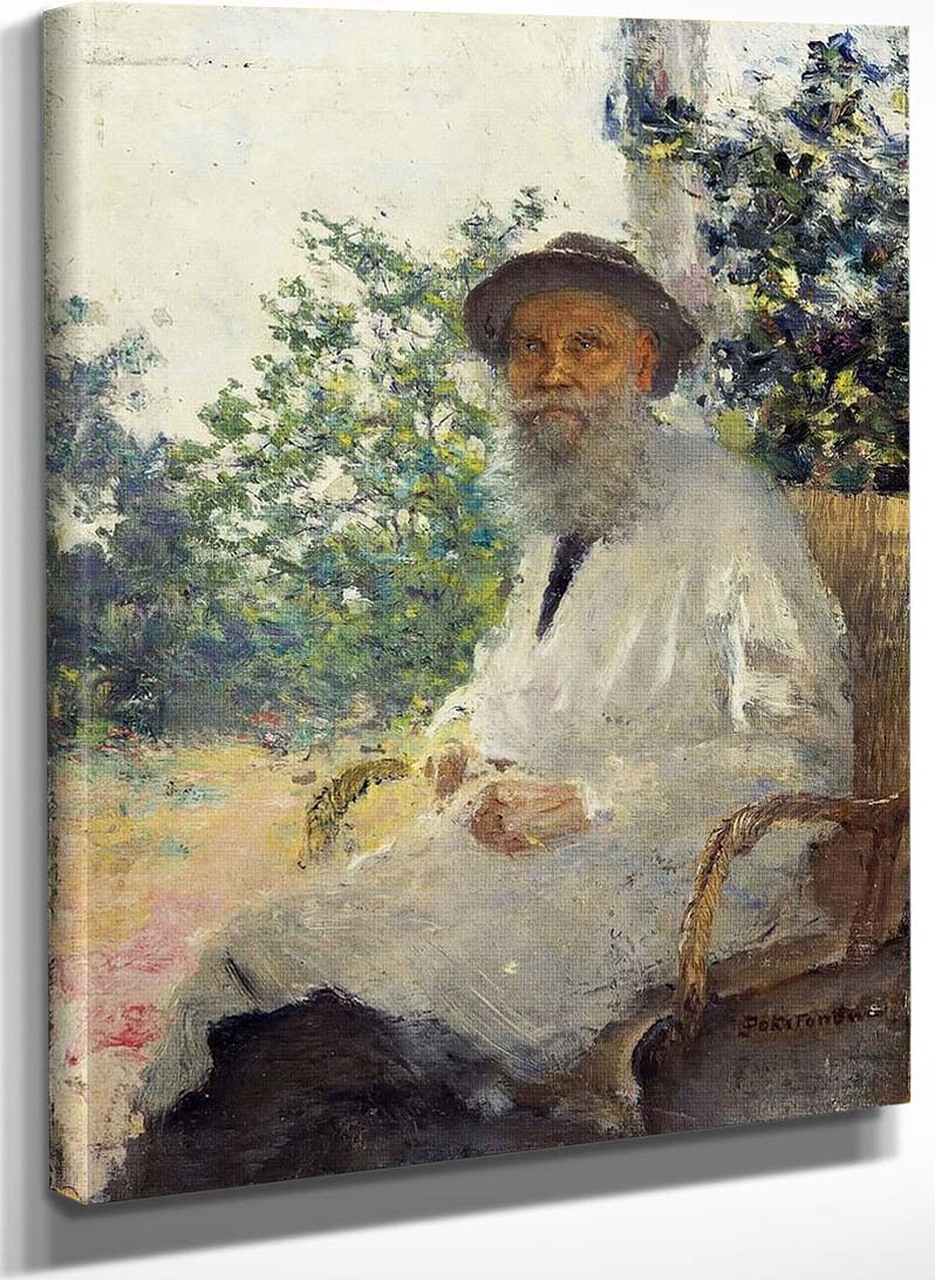Leo Tolstoy Archive
Written: 1885
Source: Original Text from Gutenberg.org
Transcription/Markup: Andy Carloff
Online Source: RevoltLib.com; 2021

Pahom went straight towards the hillock, but he now walked with difficulty. He was done up with the heat, his bare feet were cut and bruised, and his legs began to fail. He longed to rest, but it was impossible if he meant to get back before sunset. The sun waits for no man, and it was sinking lower and lower.
“Oh dear,” he thought, “if only I have not blundered trying for too much! What if I am too late?”
He looked towards the hillock and at the sun. He was still far from his goal, and the sun was already near the rim. Pahom walked on and on; it was very hard walking, but he went quicker and quicker. He pressed on, but was still far from the place. He began running, threw away his coat, his boots, his flask, and his cap, and kept only the spade which he used as a support.
“What shall I do,” he thought again, “I have grasped too much, and ruined the whole affair. I can’t get there before the sun sets.”
And this fear made him still more breathless. Pahom went on running, his soaking shirt and trousers stuck to him, and his mouth was parched. His breast was working like a blacksmith’s bellows, his heart was beating like a hammer, and his legs were giving way as if they did not belong to him. Pahom was seized with terror lest he should die of the strain.
Though afraid of death, he could not stop. “After having run all that way they will call me a fool if I stop now,” thought he. And he ran on and on, and drew near and heard the Bashkirs yelling and shouting to him, and their cries inflamed his heart still more. He gathered his last strength and ran on.
The sun was close to the rim, and cloaked in mist looked large, and red as blood. Now, yes now, it was about to set! The sun was quite low, but he was also quite near his aim. Pahom could already see the people on the hillock waving their arms to hurry him up. He could see the fox-fur cap on the ground, and the money on it, and the Chief sitting on the ground holding his sides. And Pahom remembered his dream.
“There is plenty of land,” thought he, “but will God let me live on it? I have lost my life, I have lost my life! I shall never reach that spot!”
Pahom looked at the sun, which had reached the earth: one side of it had already disappeared. With all his remaining strength he rushed on, bending his body forward so that his legs could hardly follow fast enough to keep him from falling. Just as he reached the hillock it suddenly grew dark. He looked up—the sun had already set. He gave a cry: “All my labor has been in vain,” thought he, and was about to stop, but he heard the Bashkirs still shouting, and remembered that though to him, from below, the sun seemed to have set, they on the hillock could still see it. He took a long breath and ran up the hillock. It was still light there. He reached the top and saw the cap. Before it sat the Chief laughing and holding his sides. Again Pahom remembered his dream, and he uttered a cry: his legs gave way beneath him, he fell forward and reached the cap with his hands.
“Ah, what a fine fellow!” exclaimed the Chief. “He has gained much land!”
Pahom’s servant came running up and tried to raise him, but he saw that blood was flowing from his mouth. Pahom was dead!
The Bashkirs clicked their tongues to show their pity.
His servant picked up the spade and dug a grave long enough for Pahom to lie in, and buried him in it. Six feet from his head to his heels was all he needed.